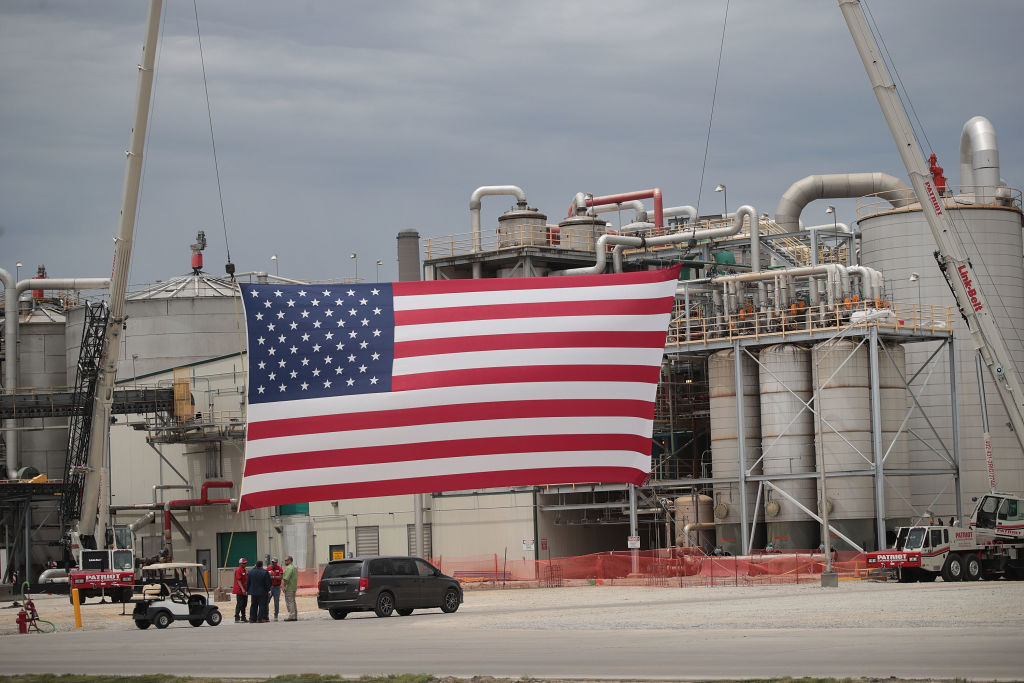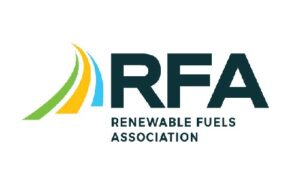Ethanol interests pleased with U.K. trade deal

The new U.S.-U.K. trade deal removes tariffs on U.S. ethanol and expands beef quotas, boosting American agricultural exports. Ethanol receives duty-free access for 1.4 billion liters, benefiting farmers and biofuel producers. While hormone-fed beef and chlorine-washed chicken remain restricted, the deal promises greater agricultural cooperation. Industry leaders praised the agreement as a major win for U.S. agriculture.
U.S. ethanol appears to be the clearest winner in the trade deal between the United States and the United Kingdom announced Thursday by President Trump and British officials.
U.S. beef could also be a winner, but the United Kingdom is sticking to its position that it will not import hormone-fed beef or chicken washed in chlorine.
The Office of the U.S. Trade Representative released a “general terms” document that says the agreement will address both tariff and non-tariff barriers for agriculture.
The tariff section says, “U.S. beef exports to the United Kingdom are currently subject to a 20% tariff within a quota of 1,000 metric tons (mt). The United Kingdom will remove the 20% tariff.”
“Additionally, the United Kingdom will create a preferential duty-free quota of 13,000 mt for U.S. beef.
“In return, the United States will reallocate to the United Kingdom 13,000 mt of its existing ‘Other Countries’ tariff rate quota (TRQ) for beef. Additionally, the United Kingdom will offer a preferential duty-free TRQ of 1.4 billion liters for U.S. ethanol.”
The nontariff barrier section says, “The United Kingdom and the United States plan to work constructively in an effort to enhance agricultural market access. Further, both countries positively support future discussions to strengthen bilateral agricultural trade.”
“The United Kingdom and the United States affirm that imported food and agricultural goods must comply with the importing country’s sanitary and phytosanitary (SPS) standards and other mutually agreed standards.
“The United Kingdom and the United States commit to working together to improve market access for agricultural products, to highlight concerns, and to increase agricultural cooperation on areas such as certain export verification programs to facilitate greater trade, and more formal bilateral engagement through international standard setting bodies.”
ETHANOL AND CORN
Ethanol and corn groups praised the deal.
Renewable Fuels Association President and CEO Geoff Cooper said in a news release, “We sincerely thank President Trump and his trade negotiators for ensuring that American-made ethanol is an important part of the trade agreement announced today with the United Kingdom.”
“While we are still awaiting the specific details of the agreement, we are excited about the prospects of expanded market access that will help boost our farm economy, while also delivering lower-cost, cleaner fuel to UK drivers.”
In 2024, the U.K. was the second-highest destination for U.S. ethanol exports, after Canada, with a total of 243.8 million gallons, representing 13 percent of all ethanol exports, RFA said.
Growth Energy CEO Emily Skor said, “In terms of trade with the U.K., the American ethanol industry had its best year ever last year, with exports valued at over $535 million.”
“This trade agreement puts us on track to set another record, all to the benefit of American farmers, biofuel producers, and UK consumers,” Skor said.
“We look forward to learning more and finding new ways to help the U.K. achieve its economic and environmental goals through the increased use of American biofuels. We commend the president and his team for making this deal and creating new opportunities for American ethanol and rural America.”
National Corn Growers Association President Kenneth Hartman Jr. said, “We applaud President Trump and his administration for brokering this deal, and we encourage them to continue to include corn, corn ethanol and corn co-products in future bilateral agreements with other countries.”
Hartman noted that during the announcement, Trump officials indicated that tariffs on U.S. ethanol will be reduced to zero. According to the White House fact sheet, this covers $700 million worth of U.S. ethanol exports.
National Cattlemen’s Beef Association President Buck Wehrbein, a Nebraska cattleman, said in a news release “With this trade deal, President Trump has delivered a tremendous win for American family farmers and ranchers.”
“For years, American cattle producers have seen the United Kingdom as an ideal partner for trade,” Wehrbein said.
“Between our countries’ shared history, culture, and their desire for high-quality American beef, securing a trade agreement is a natural step forward. Thank you President Trump for fighting for American cattle producers.”
But when asked about Trump’s comment that Health and Human Services Secretary Robert F. Kennedy Jr. is leading U.S. meat production toward “no chemicals,” NCBA Senior Vice President of Government Affairs Ethan Lane ignored Kennedy’s comment.
He responded, “As Agriculture Secretary Brooke Rollins said in the Oval Office, American cattle producers are the gold standard for safe, wholesome food production. We appreciate President Trump’s administration recognizing that.”
Tom Super, a spokesman for the National Chicken Council, said in an email, “We support the administration’s goal of expanding export opportunities for U.S. agricultural products.”
“We look forward to seeing the final details of the deal and continue to urge that U.S. chicken be included in this deal, and hopefully many more to come,” Super said.
The International Fresh Produce Association said, “We are encouraged to see these nations take steps to strengthen economic ties and expand market access for agricultural products.”
“As details of the agreement emerge, we urge negotiators to prioritize addressing non-tariff barriers that continue to limit the movement of fresh, perishable goods. Sanitary and phytosanitary measures, regulatory alignment, and border efficiencies remain critical issues for the fresh produce sector — impacting growers, exporters, and consumers,” IFPA said.
“We urge governments around the world to seize this opportunity to partner with industry leaders in shaping trade policies that ensure a plentiful, reliable supply of fresh, healthy foods. A balanced strategy — one that incorporates regulatory reform, workforce solutions, and fair, forward-looking trade agreements — will support growers, businesses, and consumers alike.”
National Association of State Departments of Agriculture CEO Ted McKinney said, “This agreement marks a significant step forward for U.S. farmers and ranchers, and U.K. agriculture and consumers as well.”
McKinney said, “We applaud the leadership of both governments in forging a partnership that opens new markets in both countries.”
The American Soybean Association said, “While soybeans were not mentioned as part of the deal, U.S. soybeans and soybean meal enjoy duty-free access to the U.K. market. The 10% tariff put into place as part of the administration’s reciprocal tariff announcement on April 2 will remain in place for imports from the U.K.”
Rollins leaves Sunday on a trip to the U.K.
In a news release, Rollins said, “President Trump has made a historic deal with the U.K. that secures increased access for American agricultural products, including unprecedented access for American beef and ethanol.”
“The president’s trade strategy is working. We are working every day to increase American economic exceptionalism and that includes selling the bounty of American agriculture around the world.
“I am traveling to the U.K. next week on my first foreign mission to meet with my counterparts and discuss the commitments of this deal. Our strong cultural and political ties between our countries have led to incredible economic prosperity,” Rollins said.
“It is our goal to achieve even closer relations, and we are thankful for a deal that benefits both countries and gives American farmers, ranchers, foresters, and food processors better access to the U.K. market and the ability to compete for this business.”
Rollins said she will “meet with senior U.K. government officials, visit facilities importing U.S. agricultural products, and hear from U.S. cooperators and U.K. importers on how the administration can best position U.S. agricultural products in this important and high value market.”
To Read more about Ethanol Industry & Bio Energy News, continue reading Agriinsite.com
Source : The Fence Post
















